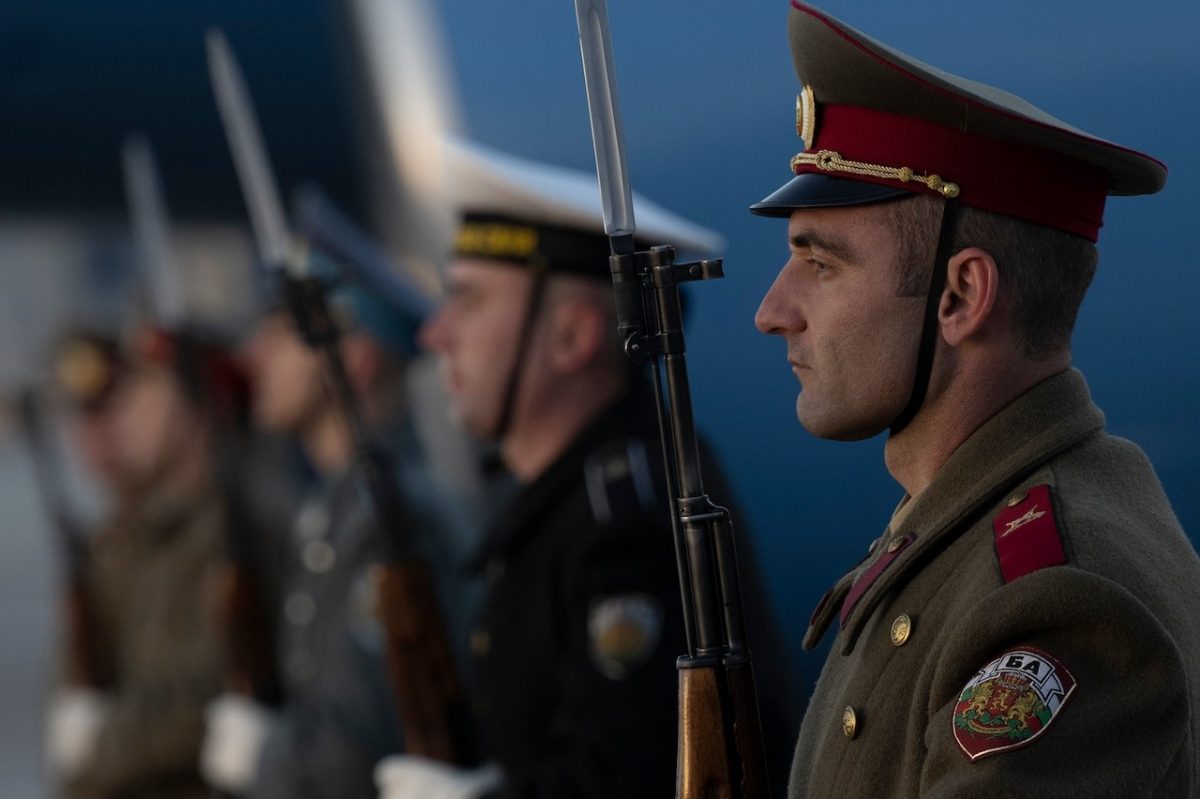Bulgaria has established and is now leading a NATO multinational battle group. The Eastern European nation has also taken in an astounding 80,000 Ukrainian refugees. The U.S. continues to move troops to Germany, Romania, Poland and the Baltics.
Bulgarian Prime Minister Kiril Petkov said America has shown tremendous support to Bulgaria, stating that “Unfortunately, there is now not a single country that can live with the illusion that they are safe and secure since the Russian invasion began…No one can defend themselves alone. Our security lies with the collective security with our allies within NATO.”
The United States has agreed to provide a Stryker armored unit to contribute to the battle group in Bulgaria, under Bulgarian command. Strykers, introduced in 2000, are eight-wheeled, medium-weight armored vehicles with substantial protection against enemy assault.
Petrov also said the U.S. and Bulgaria discussed logistics and ways to better facilitate troop movements such as building roads, railroads and a bridge over the Danube River.
Bulgaria fell within the Soviet sphere of influence as a captive nation and became a “People’s Republic” in 1946. Communist domination ended in 1990, when Bulgaria held its first multiparty election since World War II and began the process of moving toward political democracy and a market economy while combating inflation, unemployment, corruption, and crime. The country joined NATO in 2004, and the EU in 2007.
A Gallup study noted that NATO and the U.S. “rejected Russia’s demand to roll back the alliance’s presence in 14 Eastern European countries that became members after 1997. The idea likely would have gained little traction in those countries, where Russia’s leadership has been highly unpopular since it annexed Crimea in 2014. Since then, median approval (of Russia) across the mostly former Eastern bloc countries has never topped 30%, and disapproval has never dropped below 46%. In 2021, before the threat of a Russian invasion of Ukraine, nearly half (49%) disapproved.”
According to Gallup, Disapproval of Russia’s leadership is highest in Poland, where 79% of adults disapproved in 2021. That level of disapproval is 28 points higher than it was in 2013 before the annexation of Crimea.
Current levels of disapproval are also particularly high in two of the three Baltic states, Estonia at 56% and Latvia at 49%. Disapproval in both countries is 10 and 11 points higher than in 2013, respectively. Estonia and Latvia — and Lithuania — have sent weapons to Ukraine to support the country against a potential Russian invasion. Disapproval of Russia’s leadership remains well above where it was before the annexation of Crimea. In both Hungary and Bulgaria, levels are 21 points higher in 2021 than in 2013, while in Romania, the level of disapproval is 10 points higher than where it previously stood.
Putin’s goal was to weaken NATO, both now and in the future by discouraging expansion. His invasion has achieved exactly the opposite. Switzerland, the ultimate “neutral” state in Europe, has joined its European Union neighbors in placing sanctions on Russia.
Sweden, which also has maintained neutrality for over one hundred years, is moving closer to NATO. According to published reports, it has provided 135,000 field rations, 5,000 helmets, 5,000 body shields and 5,000 anti-tank weapons to Ukraine. A National Interest study noted that the Nordic nation has also provided Bofors AT-4, a single-use anti-tank launcher weapons to the embattled nation.
Finland, as well, as reacted sharply to Putin’s war. A Foreign Policy report quotes Finnish President Sauli Niinisto reacted promptly to Russian President Vladimir Putin’s demand for “legal security guarantees from the Weststating that “maintaining a national room to maneuver and freedom of choice is the foundation of Finland’s foreign, security, and defense policy…Finland’s room to maneuver and freedom of choice also include the possibility of military alignment and of applying for NATO membership…”
Photo: An honor guard welcomed the U.S. Secretary of Defense Lloyd J. Austin III, when he arrived in Sofia, Bulgaria on March 18. (DoD photo)
